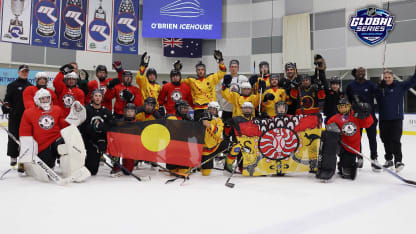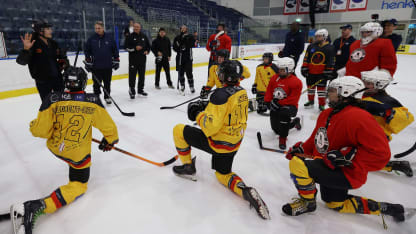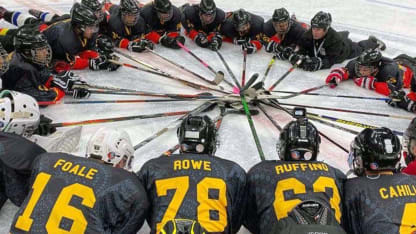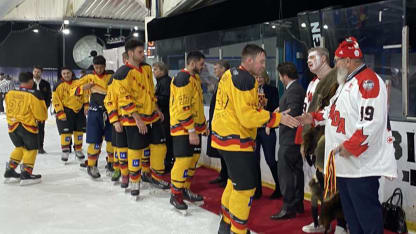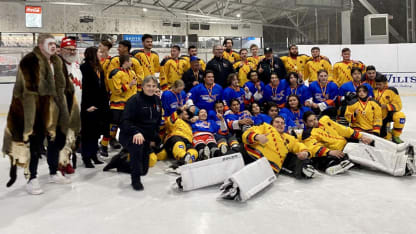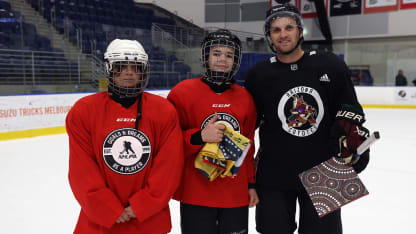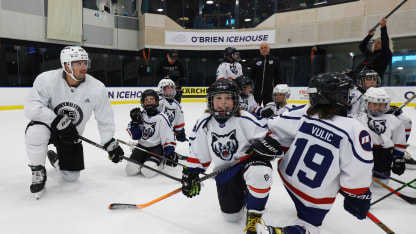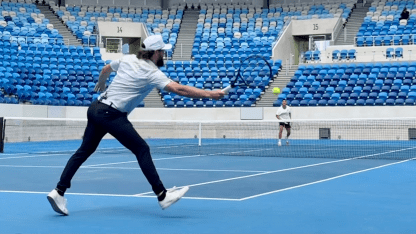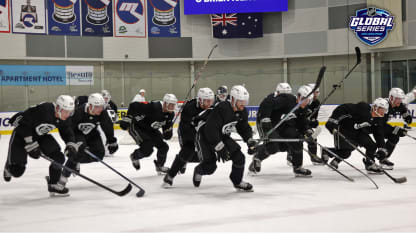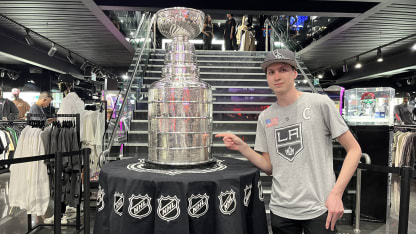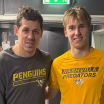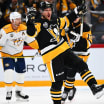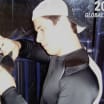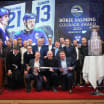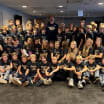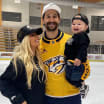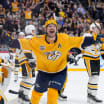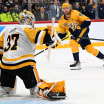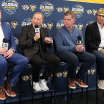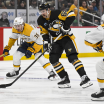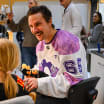DOCKLANDS, Australia -- When the Kaurna Boomerangs left Adelaide, Australia, in January of 2020, bound for a hockey tour against First Nations teams in Northern Alberta, it was a bit of a shock to the system for the Aboriginal team based in South Australia.
"I think we left at 42 degrees and arrived at minus-50," Marie Shaw said, laughing, with 42 degrees Celsius equaling 107.6 degrees Fahrenheit.
It was an adventure, a test, an expansion up of the world for the kids on the Boomerangs, a six-year-old team based out of Adelaide that is a branch of the Ice Factor ice hockey program set up by Shaw in 2005. It was a way for them to play against other indigenous teams, a way for them to share their culture with similar cultures in Canada.
It was exactly what the program was designed to do.
As Shaw said, "It's not too much the hockey itself, it's more the doors that open."
Three years later, with the NHL in Melbourne, Australia for the first time for the 2023 NHL Global Series -- Melbourne with the Arizona Coyotes and Los Angeles Kings set to play on Sept. 23 and 24 at Rod Laver Arena, the Boomerangs are a thriving program that has helped dozens of at-risk kids who might otherwise have been left behind.
On Thursday, the team got on the ice with Alex Kerfoot and Nick Bjugstad of the Coyotes and hockey analyst Anson Carter at O'Brien Icehouse, presenting them with Aboriginal art and receiving a donation of equipment from NHLPA Goals & Dreams. The Boomerangs were scheduled to attend the open practice for the teams Friday and slated to participate in the pregame festivities and play a scrimmage at intermission of the game between the Coyotes and Kings on Saturday. That game, like the one on Sunday, is at 12 a.m. ET, and will air on NHL Network and ESPN+ in the United States, Sportsnet and Sportsnet+ in Canada, and 9Go, 9Now, ESPN and the ESPN App in Australia.
It's a new frontier for a team that has already helped so many.
"It's a program designed to have kids who are slightly disengaged or having issues at school just somewhere to have a bit of an outlet," said Justine Ruffino, the team's head coach. "A lot of these kids [are from] low socio-economic areas, feeling sort of misunderstood. It gives them a good social context, a good team environment and a nice aggressive sport to get some of that heat out."
